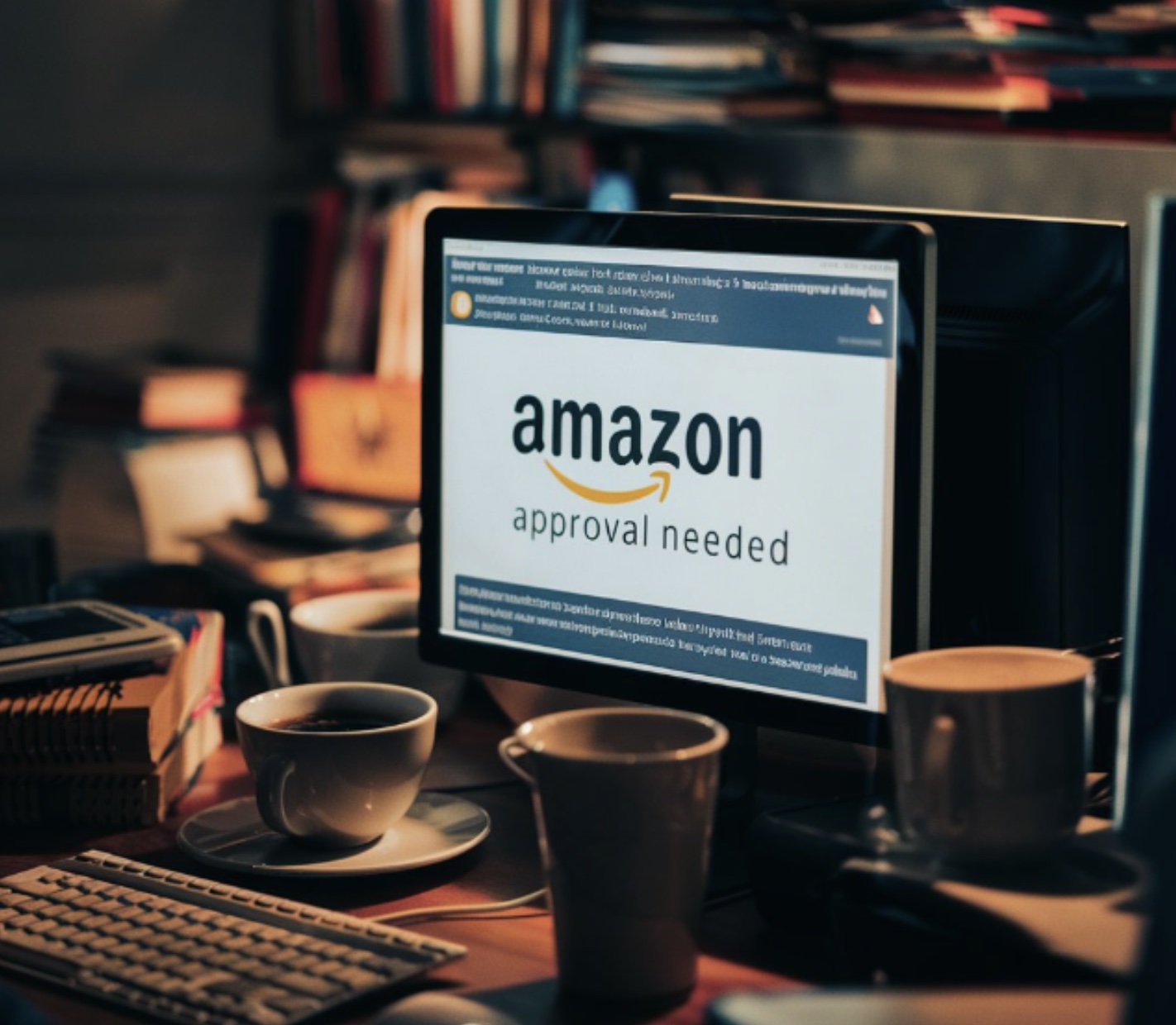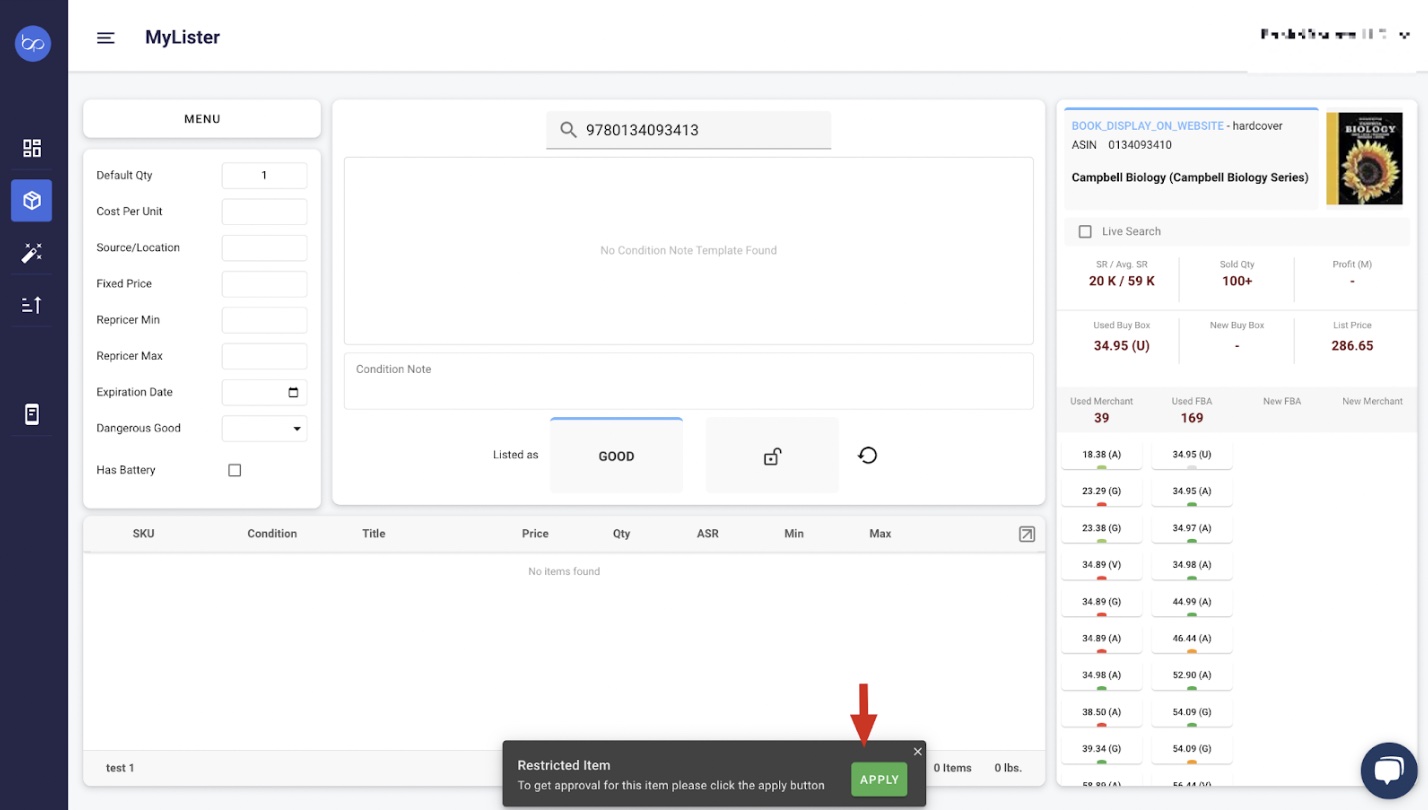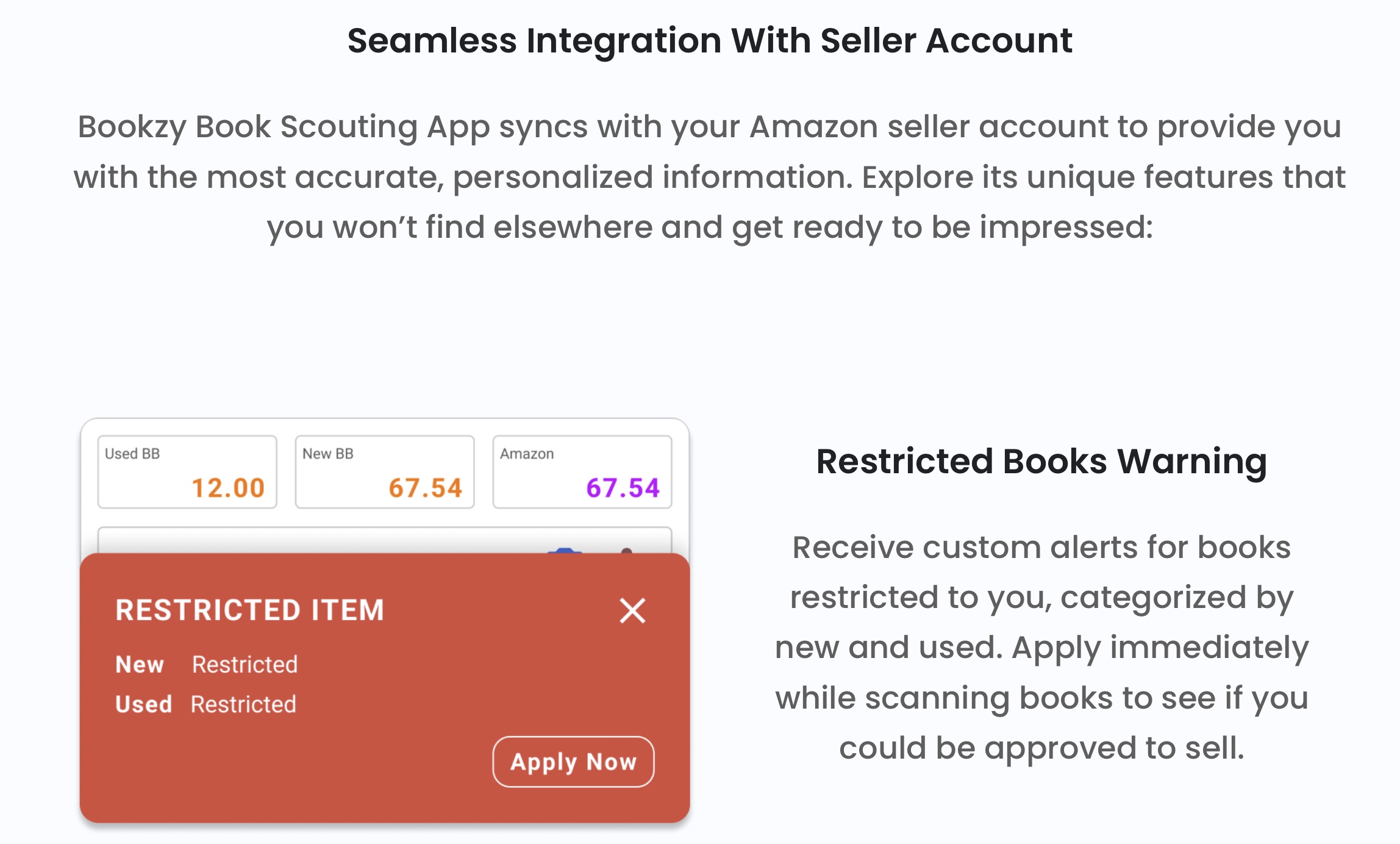What You Need to Know About Amazon Approval Needed Products and Ways To Fix It

Introduction
As an Amazon seller, encountering the message “Amazon Approval Needed” while trying to list a product can be frustrating. This message indicates that your product requires approval from Amazon Seller Central before it can go live. In this blog post, we’ll explore the various reasons behind the “Amazon Approval Needed” message for sellers and provide guidance on how to successfully navigate through this approval process.
What Does Amazon Approval Needed Mean?
When you receive the “Amazon Approval Needed” message while attempting to list a product, it means that the product falls under specific categories or brands that require Amazon’s approval. This process ensures compliance with Amazon’s policies and standards, maintaining a high-quality marketplace for both sellers and buyers.
Here’s why Amazon uses this approval process and what it means for sellers:
Product Categories
Some product categories are “gated” or restricted. Not all sellers can list products in these categories freely. To gain access, sellers need to apply for approval and meet specific criteria set by Amazon.
Categories That Require Approval:
Amazon requires sellers to obtain approval before listing products in certain restricted categories.
The current list of Amazon-gated categories includes:
- Postage Stamps
- Collectible Coins
- Entertainment Collectibles
- Fine Art
- Holiday Selling Requirements in Toys & Games
- Jewelry
- Music & DVD
- Major Appliances
- Sports Collectibles
- Streaming Media Players
- Video, DVD, & Blu-ray
- Popular Textbooks
- Watches
If you plan to sell in any of these gated categories, be prepared to go through Amazon’s approval process, which may involve submitting additional information and documentation.
Brand Restrictions
Certain well-known brands protect their products from unauthorized sellers by requesting restrictions on who can list their items. Sellers must seek approval from both Amazon and the brand owner to offer these products.
Quality Control
The approval process acts as a quality control measure. It allows Amazon to verify the authenticity and condition of products, ensuring a positive shopping experience for customers.
Policy Compliance
Sellers must follow Amazon’s policies, such as ensuring that products are new and unused. Approval helps confirm compliance with these policies.
Enhanced Customer Trust
When customers see that certain products or brands require approval, it can boost their confidence, knowing that Amazon has vetted these listings.
So, if you face the “Amazon Approval Needed” message, don’t be discouraged. It’s Amazon’s way of maintaining high standards and providing a secure platform for both sellers and buyers. By following the approval process and meeting the necessary criteria, you can successfully list and sell products in restricted categories or brands, helping to grow your business on Amazon.
What Counts as a Restricted Product on Amazon?
Amazon doesn’t have a concrete definition of what qualifies as a restricted product. The restrictions can vary widely depending on the specific product.
However, there are some general guidelines to keep in mind when doing product research, especially if you plan to use Fulfillment by Amazon (FBA):
- Review Amazon’s FBA Product Restrictions to see which items are not allowed to be sold through the FBA program.
- Amazon’s restricted categories broadly fall into three main types:
a. Collectible items that have specific condition requirements
b. High-quality, expert-level products
c. Goods that are regulated by state or federal laws
These restrictions are in place to help protect Amazon’s massive customer base.
So when evaluating potential products to sell on Amazon, make sure to carefully check if they fall into any of these restricted categories or have specific approval requirements, even if the broader product category seems open.
How to Get Approval for Product Listings
If you’re facing the “Approval Needed” hurdle when trying to list your products on Amazon as a seller, don’t worry – there are steps you can take to resolve this:
1. Try the “Apply to Sell” button: Sometimes Amazon doesn’t require you to upload any documents. Simply click the “Apply to Sell” button and see if your application is approved without needing to provide additional information. Bookz Pro has a listing software for Amazon sellers and it can speed up the listing and approval processes.

Bookz Pro listing software gives you the ability to quickly and easily apply to sell on Amazon
2. Upload an invoice: If Amazon requires documentation, you’ll need to upload an invoice showing that you have purchased at least 10 units combined for the specific brand, category, or subcategory you’re seeking approval for. Amazon gives you the option to omit the pricing information if you don’t feel comfortable sharing your supplier’s pricing details.
Tip: Even if you have uploaded the proper documentation, you may sometimes face declines. If you keep getting declined despite providing legitimate information from a genuine supplier, don’t give up. I strongly advise you to reapply repeatedly until you get approved. I encountered this same issue when I was seeking approval for the DVDs category, and persistence eventually paid off.
For example, if you’re trying to list a new line of cosmetics on Amazon, the system may require approval. Before submitting, ensure you’ve provided all the necessary product information, including ingredients and safety certifications. If your new product listing is still pending approval despite your efforts, contact Amazon’s seller support to seek clarification and resolve the issue.
Where to Buy Items for an Invoice to Get Ungated?
To obtain an invoice for Amazon approval, consider the following options:
- Wholesale suppliers: Purchase products from legitimate wholesale suppliers who can provide you with valid invoices.
- Retail stores: Buy products from retail stores that offer itemized receipts or invoices, which you can use for Amazon’s approval process.
- Online marketplaces: Source products from reputable online marketplaces that can provide you with proper invoices or order confirmations.
Remember to ensure that the invoices you submit to Amazon are genuine and contain the required information to increase your chances of getting approved.
Resolve Restricted Products Right Away With Bookz Pro

Don’t let restricted categories cost your sales to drop. Bookzy mobile syncs with your Amazon seller account to provide custom alerts on new and used books that require approval.
Bookzy provides a suite of unique features to give you a competitive edge. You’ll receive real-time alerts on restricted books, both new and used, so you can quickly identify and apply for approval on gated categories. The app also shows the current approval status for those restricted categories, taking the guesswork out of what you can and can’t sell.
Conclusion
Amazon may show you a message saying you need their approval to sell a product. This can be confusing, but it’s because Amazon has approval requirements for certain product categories and brands.
The approval process helps Amazon make sure products are high-quality, comply with rules, and build customer trust. Sellers usually need approval to list items in restricted categories or sell certain branded products. Going through the approval process is important if you want to successfully sell those types of products on Amazon.
Frequently Asked Questions
Certain product categories are completely open, meaning you can start selling in the main category and its subcategories without needing any special approval. However, be aware that even if a main category is ungated, it’s possible that some of the subcategories within it may still require you to obtain approval before you can sell in them.
If approved, you can create listings and sell items in the specific category. If not, Amazon will provide feedback to help refine your application for future approval attempts.
The time it takes to get approved on Amazon varies in the following situations:
- Amazon Seller Account Approval: Usually takes 24 to 48 hours, but may be longer if more information is needed.
- Product Listing Approval: This can take a few hours to several days, depending on the product and listing complexity.
- Amazon Associates Program Approval: Allow up to 5 business days for manual review.
- Amazon Handmade Seller Account Approval: It takes up to 7 business days for a thorough review of handmade products.
Be patient during the approval process and provide all necessary information to expedite approval whenever possible.
Approvers can change an order before saying yes, or they can say yes to some items and no to others. They can also leave comments for the person who requested the order. If an approver is away from the office, they can temporarily let someone else do their job.
Amazon regularly updates its list of gated categories to maintain quality standards. Before selling any product, check Seller Central for listing restrictions and ungating requirements.
Using known brand items already sold on Amazon can streamline the approval process. Once ungated, you can sell your private label products, but applications are easier and less risky if you leverage existing Amazon listings.
Certain Amazon product categories are “gated”, requiring seller approval before listing those items. Amazon gates categories to ensure customers get high-quality, safe, and genuine products. The approval process allows sellers to qualify them for restricted merchandise.
Even great products may need approval if they fall under a gated category. This helps Amazon maintain standards and protect buyers from counterfeits or low-quality goods. Sellers can try to get approval upfront or may be able to list first, then face restrictions later if there are any violations.



